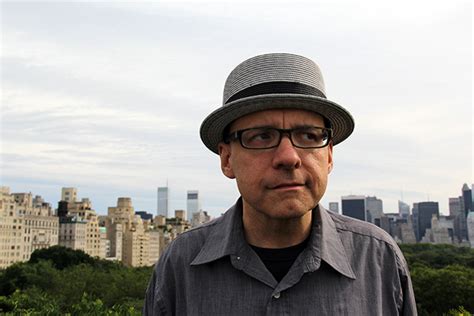A Quote by Terry Gilliam
I never define depression, clinical or otherwise. It's the basis of most life, it seems to me, in the modern world. We're all depressed.
Related Quotes
Depression, when it's clinical, is not a metaphor. It runs in families, and it's known to respond to medication and to counseling. However truly you believe there's a sickness to existence that can never be cured, if you're depressed you will sooner or later surrender and say: I just don't want to feel bad anymore. The shift from depressive realism to tragic realism, from being immobilized by darkness to being sustained by it, thus strangely seems to require believing in the possibility of a cure.
One of the manifestations of depression for me is that I lose my will. And I thereby lose my ability to focus. I don't think I'll ever have the day-to-day consistency in my performance that something like This American Life has. If I'm not depressed and I'm on and I can focus and I can think through something hard and without interruption and without existential emptiness that comes from depression, that gives me - not mania. But I exalt. I exalt in not being depressed.
If you know someone who’s depressed, please resolve never to ask them why. Depression isn’t a straightforward response to a bad situation; depression just is, like the weather. Try to understand the blackness, lethargy, hopelessness, and loneliness they’re going through. Be there for them when they come through the other side. It’s hard to be a friend to someone who’s depressed, but it is one of the kindest, noblest, and best things you will ever do.
It's very important to me that people know that depression doesn't discriminate. A lot of people look at people who have depression and think that it's not legitimate because they're wealthy or it looks like everything seems to be doing fine. But it doesn't pick and choose. It can affect anybody in the brain, no matter how perfect your life seems.
The Panic of 1819 exerted a profound effect on American economic thought. As the first great financial depression, similar to a modern expansion-depression pattern, the panic heightened interest in economic problems, and particularly those problems related to the causes and cures of depressed conditions.
That's the thing I want to make clear about depression: It's got nothing at all to do with life. In the course of life, there is sadness and pain and sorrow, all of which, in their right time and season, are normal-unpleasant, but normal. Depression is an altogether different zone because it involves a complete absence: absence of affect, absence of feeling, absence of response, absence of interest. The pain you feel in the course of a major clinical depression is an attempt on nature's part (nature, after all, abhors a vacuum) to fill up the empty space.
Human bodies are designed for regular physical activity. The sedentary nature of much of modern life probably plays a significant role in the epidemic incidence of depression today. Many studies show that depressed patients who stick to a regimen of aerobic exercise improve as much as those treated with medication.





































